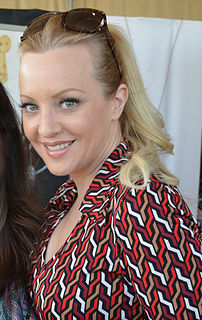A Quote by Sloane Crosley
Some of the writers I admire who seem very, very funny and very emotional to me can develop a closeness with the reader without giving too much of themselves away. Lorrie Moore comes to mind, as does David Sedaris. When they write, the reader thinks that they're being trusted as a friend.
Related Quotes
As soon as I start to write I'm very aware, I'm trying to be aware that a reader just might well pick up this poem, a stranger. So when I'm writing - and I think that this is important for all writers - I'm trying to be a writer and a reader back and forth. I write two lines or three lines. I will immediately stop and turn into a reader instead of a writer, and I'll read those lines as if I had never seen them before and as if I had never written them.
Real writers-that is, capital W Writers-rarely make much money. Their biggest reward is the occasional reader's response.... Commentators-in-print voicing big fat opinions-you might call us small w writers-get considerably more feedback than Writers. The letters I personally find most flattering are not the very rare ones that speak well of my editorials, but the occasional reader who wants to know who writes them. I always happily assume the letter-writers is implying that the editorials are so good that I couldn't have written them myself.
If only you’d remember before ever you sit down to write that you’ve been a reader long before you were ever a writer. You simply fix that fact in your mind, then sit very still and ask yourself, as a reader, what piece of writing in all the world Buddy Glass would most want to read if he had his heart’s choice. The next step is terrible, but so simple I can hardly believe it as I write it. You just sit down shamelessly and write the thing yourself. I won’t even underline that. It’s too important to be underlined.
The desire to be liked is acceptable in real life but very problematic in fiction. Pleasantness is the enemy of good fiction. I try to write on the premise that no one is going to read my work. Because there's this terrible impulse to grovel before the reader, to make them like you, to write with the reader in mind in that way. It prevents you doing work that is ugly or upsetting or difficult. The temptation is to not be true to what you want to write and to be considerate or amusing instead. I'm always trying to fight against the impulse to make my readers like me.
I have a total responsibility to the reader. The reader has to trust me and never feel betrayed. There's a double standard between writers and readers. Readers can be unfaithful to writers anytime they like, but writers must never ever be unfaithful to the readers. And it's appropriate, because the writer is getting paid and the reader isn't.





































